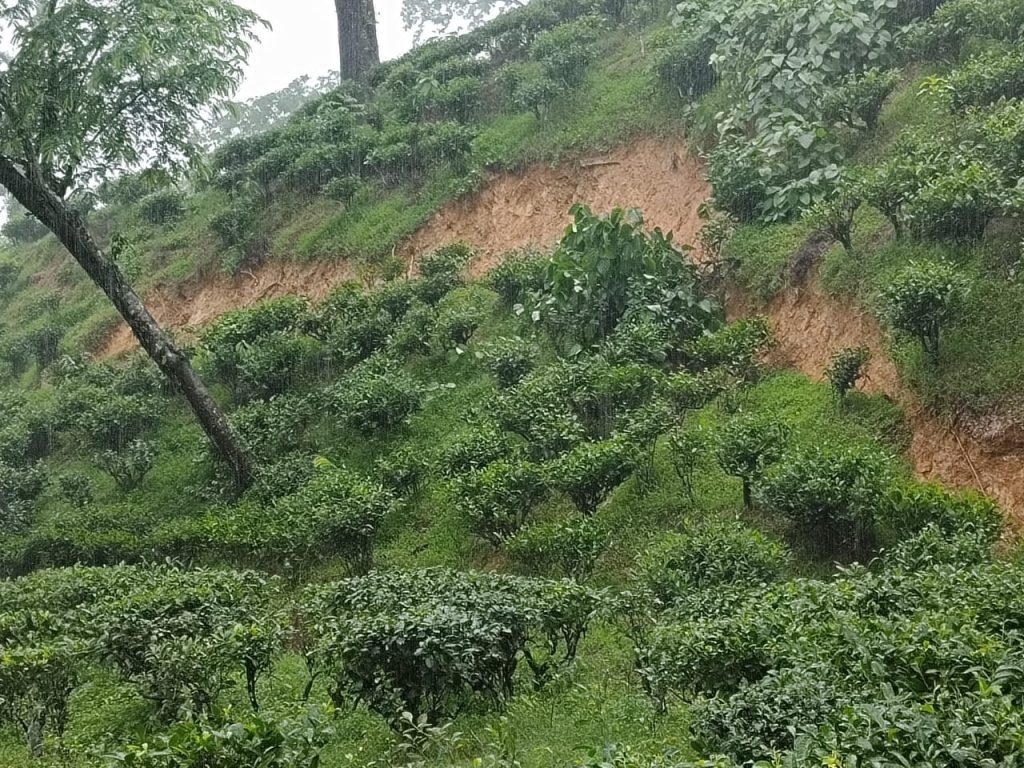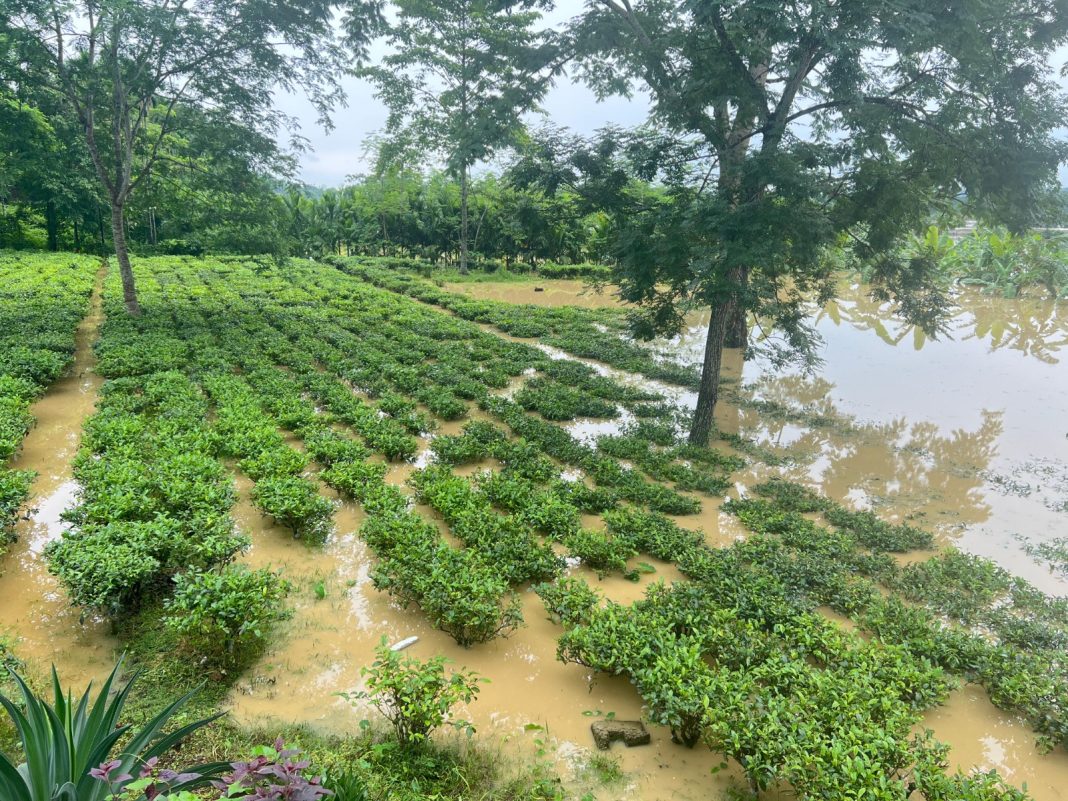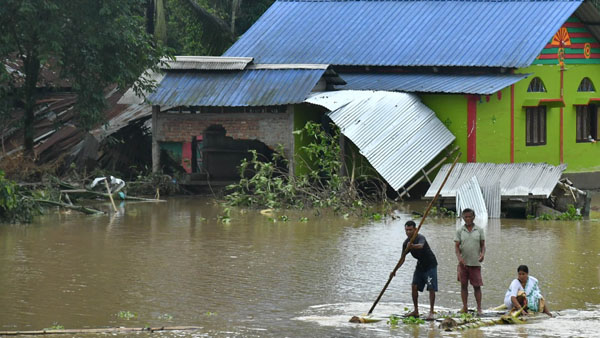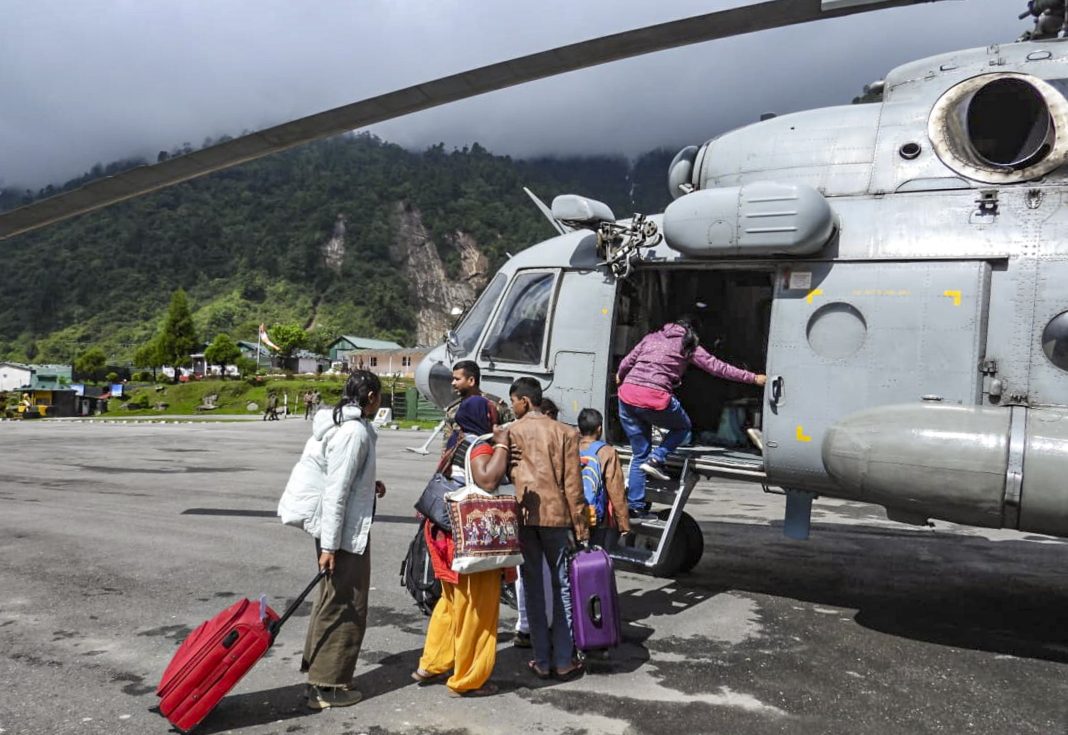
Guwahati, June 4: Heavy and relentless rainfall has severely impacted tea plantations in Assam’s Barak Valley, with growers fearing a crop loss of 30% to 40% for June. This follows a 22% drop in output in May due to drought-like conditions.

Sushil Singh, chairman of the Tea Association of India (TAI), Barak Valley Branch, said the unprecedented rains over the past few days have wreaked havoc on tea estates across Cachar, Sribhumi, and Hailakandi districts.
Cachar district alone recorded 416 mm of rainfall in the 24 hours ending at 8:30 AM on June 1 — the highest single-day rain on record, surpassing the previous high of 290.3 mm set in 1893.

“Since May 29, around 12,000 hectares of tea plantations in Barak Valley have been submerged, with water still standing 3 to 4 feet high in many areas. Waterlogging beyond three to four days severely threatens the survival of tea bushes,” Singh said.
The situation worsened with breaches in embankments across multiple locations, while landslides and washed-away roads and bridges have disrupted access within several tea gardens. Labour lines have also been flooded, hindering both cultivation and harvesting during the critical second flush period — a peak season for tea production.

Singh further noted that poor electricity supply and deteriorating road conditions linking Barak Valley with Guwahati are likely to disrupt the transport of industrial inputs and the dispatch of processed tea. “These back-to-back extreme weather events are raising serious concerns about the long-term sustainability of the tea industry in the region,” he warned.





